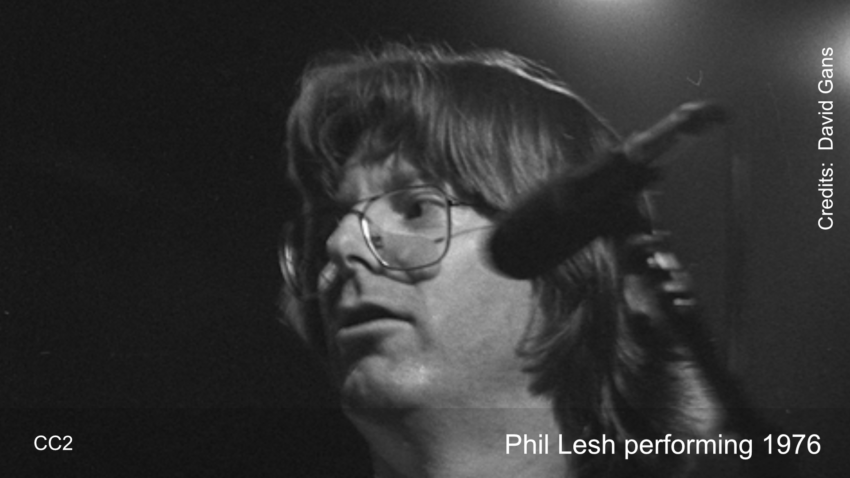Phil Lesh’s journey in music began with classical training, first on the violin and later on the trumpet. He studied under avant-garde composer Luciano Berio and collaborated with minimalist pioneer Steve Reich. His musical path took a significant turn when Jerry Garcia recruited him to play bass for a new band, which eventually became the Grateful Dead. Though unfamiliar with the bass, Lesh’s unique approach transformed the instrument’s role in rock music.
- Classical Beginnings to Rock Icon: Phil Lesh began with classical training before transitioning to bass in the Grateful Dead, bringing an innovative approach that redefined the instrument in rock music.
- Unique Bass Style: Lesh’s classical influences and improvisational style became essential to the Grateful Dead’s sound, especially in their lengthy, exploratory jams.
- Enduring Legacy: Lesh co-wrote iconic songs like “St. Stephen” and “Dark Star,” which became concert staples, solidifying his place in rock history and earning a Rock and Roll Hall of Fame induction.
- Resilience and Influence: Despite health setbacks, Lesh continued performing and inspired fans and musicians, leaving a profound impact on music and the community.
The Grateful Dead, formed in San Francisco during the 1960s, quickly became synonymous with the acid rock genre. Lesh’s innovative bass lines were critical to the band’s sound. His approach combined classical influences with rock, creating a dynamic interplay with lead guitarist Jerry Garcia. Lesh’s style involved leading melodies and complex arpeggios, making his bass lines an integral part of the band’s long, improvisational jams.
Variety reported that Lesh co-wrote several of the band’s signature songs, including “St. Stephen,” “The Eleven,” and the epic “Dark Star.” These compositions became staples at Grateful Dead concerts, known for their ever-evolving performances. Lesh’s contributions were recognized when he was inducted into the Rock and Roll Hall of Fame with the Grateful Dead in 1994.
Despite facing numerous health challenges, Lesh remained active in the music scene. He underwent a liver transplant in 1998 and survived prostate and bladder cancer. His resilience was evident as he continued performing and inspiring musicians and fans alike. His legacy is marked by his ability to push musical boundaries and his dedication to the art form.
Fans and fellow musicians have taken to social media to express their condolences and celebrate Lesh’s life and contributions to music. His influence on the Grateful Dead and the broader music community will be remembered for generations. Lesh is survived by his wife, Jill, and their sons, Grahame and Brian.

